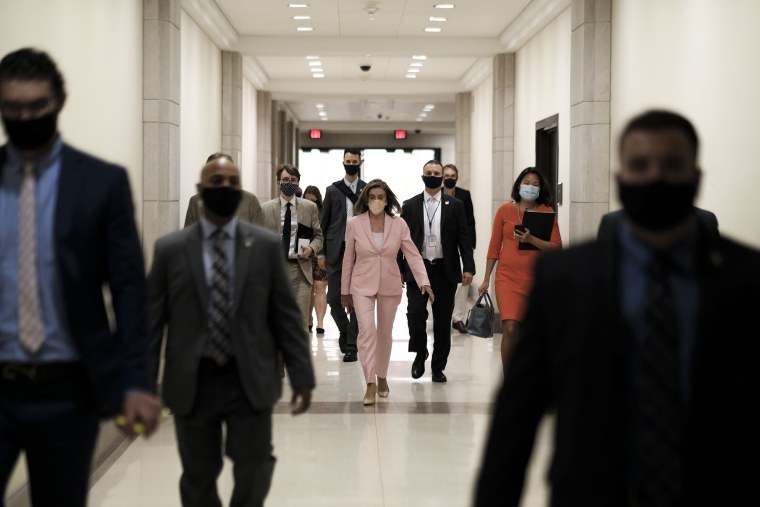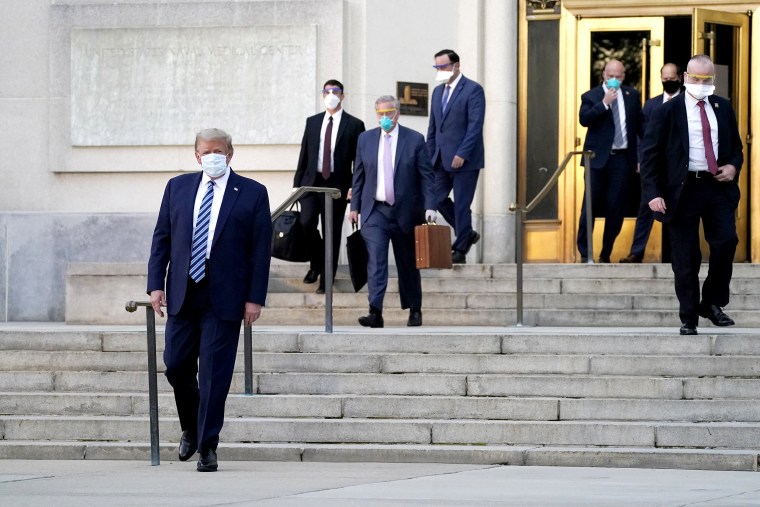When Daniel Oliverio finally received his first unemployment check in August — four months after he was laid off because of the coronavirus pandemic — the first thing he did was buy fresh vegetables.
Oliverio, the former sports information director for Seton Hill University, a small school outside Pittsburgh, had been subsisting on 70-cent hot dogs and canned goods.
Those unemployment benefits, which arrived after months of phone calls to the Pennsylvania Department of Labor & Industry, were lifesaving, he said. Down to his last few hundred dollars and without the hope of finding a job, Oliverio, 35, said he was on the cusp of losing everything.
"Luckily, I had my girlfriend and I had my family to keep encouraging me," he said. "If I didn't, it may have ended up a lot darker than it was. Because you definitely get depressed. You definitely go to a place where you get a little scared sometimes with your own thoughts."
Many families across the United States continue to face those same struggles seven months into the pandemic: 25.5 million people remain unemployed and first-time unemployment claims totaled 840,000 last week, a higher-than-expected number. Yet the hope that the millions without work may receive further help from Congress and the White House is low, as Democrats and Republicans remain at an impasse over a next stimulus bill.
Support from the Coronavirus Aid, Relief, and Economic Security (CARES) Act, passed in March, has run out. Its additional unemployment benefits, support for small businesses, industry relief, funds for hospitals and nursing homes to buy personal protective equipment, aid for state and local governments and other protections are gone, even as economists and Federal Reserve Chairman Jerome Powell warn that further help is needed.
President Donald Trump has muddied the waters as negotiations remain at a standstill. He tweeted at first on Tuesday that the White House and Republicans would pull out from negotiations, only to post hours later that he supported some aspects of the bill. His late-night second round of tweets included support for $1,200 stimulus checks for Americans and financial aid to the airline industry, as well as further Paycheck Protection Program loans for small businesses.

When asked by reporters Wednesday about Trump's tweets, House Speaker Nancy Pelosi, D-Calif., dismissed his pivots as political theater.
"All the president wants is his name on a check," she said. "We're here to honor our heroes, crush the virus, put money in the pockets of the American people — beyond a check with his name on it."
To the millions of Americans who remain unemployed because of the economic crisis, the discussions in Washington — or lack thereof — cause only further anxiety during an especially difficult year.
"Disney just laid off thousands, and the airlines did, too, so why is it taking so long?" asked Harriet Tuch, 71, of Boca Raton, Florida, who was furloughed from her job as a stenographer in March. "They should have something. The House passed something in May, and it probably has sat on McConnell's desk ever since. It's October, so what are they doing?"
Millions unemployed with no deal in sight
Economists warned when the CARES Act passed that additional funds would likely be needed to further prop up the economy.
The $2.2 trillion in the legislation was a stopgap measure for the economy and individual Americans during the months of lockdown, economists said, rather than a stimulus measure to boost a recovery.
"I think it makes sense to turn the conversation to: Do we actually want to try to get the recovery to go faster now that we're through the crisis period?" said Jesse Edgerton, senior economist at JPMorgan Chase.
That sentiment mirrors what Powell said Tuesday. Waiting to pass more stimulus measures, he said, could "lead to a weak recovery, creating unnecessary hardship for households and businesses."
"Even if policy actions ultimately prove to be greater than needed, they will not go to waste," Powell added. "The recovery will be stronger and move faster if monetary policy and fiscal policy continue to work side by side to provide support to the economy until it is clearly out of the woods."
Some economists argue that the recovery has also taken a step back after federal unemployment benefits expired at the end of July. The CARES Act provided $600 a week to those without work, which created a ripple effect, helping support businesses and jobs across the country.
Now those dollars have disappeared, and with them about $667 billion from the economy in August alone, according to data from the Bureau of Economic Analysis.
The expiration of the benefits also makes it difficult for some people to keep their lives together. Without that $600, Dominic Basile said, he barely has enough money to get through the rest of October.
Before the pandemic, Basile was adding to his savings while paying off his home in North Carolina and his student loans. Unable to get a paycheck protection loan to help a consultancy business he started in January despite having lost more than 75 percent of his work when the pandemic struck, Basile finally was able to receive unemployment benefits in August.
Now that support is gone, too, and he feels like Congress and the White House do not consider him or the millions of others who are in a similar position as priorities.
"They literally are saying, 'We're not going to be able to finish this,'" he said. "Why is that OK? They still get paid, they still have health insurance, and they can just wait until the election? Meanwhile, for me it's a lot of sleepless nights. It means a lot of stress that I can't control, because I don't know my living situation, my career and whether I can keep my car, my house, even my dog."
'Biggest fiscal challenge we have ever faced'
Trump said he was pulling out of negotiations over the stimulus bill because the money would go to state and local governments. His tweet Tuesday afternoon claimed that Pelosi was asking "for $2.4 Trillion Dollars to bailout poorly run, high crime, Democrat States, money that is in no way related to COVID-19." (The aid package House Democrats passed last week was really for $2.2 trillion.)

Chokwe Lumumba, the mayor of Jackson, Mississippi, said the president has attached the idea of financial support for communities to politics, rather than people in need.
His and Congress’ slow response is forcing many Jackson residents to return to the labor force and put themselves in close contact with one another during the pandemic, he said.
"The virus feeds on the fact that people are in such a financially insecure place to begin with that the notion of socially distancing is a luxury in and of itself — it is a privilege," Lumumba said. "And so these are all of the things that are taking place and are worsening because of an impasse and inability to reach an agreement."
Lumumba has asked the state’s Congressional delegation, including its two Republican senators, for help — they "have been kind in their responses but unwilling to commit to anything."
But as lawmakers in Washington tussle, the financial realities for the governments in their home states continue to worsen.
State and local governments will face a $500 billion shortfall over the next two fiscal years, with more than 4 million jobs at stake, Moody's Analytics reported. Last week's jobs report showed that 1.2 million state and local government jobs have already disappeared over the past seven months.
Larry Hogan, the Republican governor of Maryland, called it "the biggest fiscal challenge we have ever faced" late last month.
The push for greater support for states has been intense as they sink further into financial holes. Any resulting austerity measures could mean cuts to essential services, layoffs, education funding shortfalls and more, economists warn.
It's a lesson that Heidi Schierholz, director of policy at the nonprofit Economic Policy Institute who was chief economist at the Labor Department during the Obama administration, said she thought the country had learned from the Great Recession: A lack of support for state and local governments will put a drag on the economy and slow the recovery.
"Austerity at the state and local level could cost millions of jobs," Schierholz said. "It's just massive, and it makes me want to scream, because this is a totally unforced error. We know how this plays out."
An uneven recovery continues
Even though the country has recovered about half the jobs it lost in March and April, economists warn that the recovery remains uneven and fairly precarious. At the end of August, a month after the CARES Act's unemployment benefits expired, there were 6.6 million more people out of work than there were available jobs.
A slowdown in hiring and a small gain of jobs in September shows a recovery that has become increasingly fragile. And many of the jobs that are returning are not secure.
In August and September, 27 percent of workers who returned to their jobs after having been laid off because of the pandemic said they have been laid off a second time, and 36 percent said they were told they could be laid off again, according to data gathered by the international research company Real-Time Interactive World-Wide Intelligence and Cornell University.
While high-income employees have largely recovered, it is low-wage workers who face a difficult comeback — one much worse than in past recessions.
"The losses have been so disproportionately high among low-wage workers because they oftentimes have the most public-facing jobs and because we still don't have the virus under control," Schierholz said. "There's clearly no vaccine or effective treatment, and we also haven't put in the public health measures that would make truly successful reopenings possible."
Ultimately, eyes remain on Congress and the White House, although not many people express hope.
Whether it is their financial or their literal health, voters appear to feel as though lawmakers in Washington are playing politics with their lives. It is a frustration during an already perilous year.
"In my opinion, they're dragging their feet, because right now it's an election year, because you can lose more votes by actually making a decision than you can by just kind of talking about how they need to come to a decision," said Oliverio, the former Pennsylvania college employee. "Well, that's great. But you're not actually going to come to a decision that will help anyone, and, in the meantime, people are still suffering."
